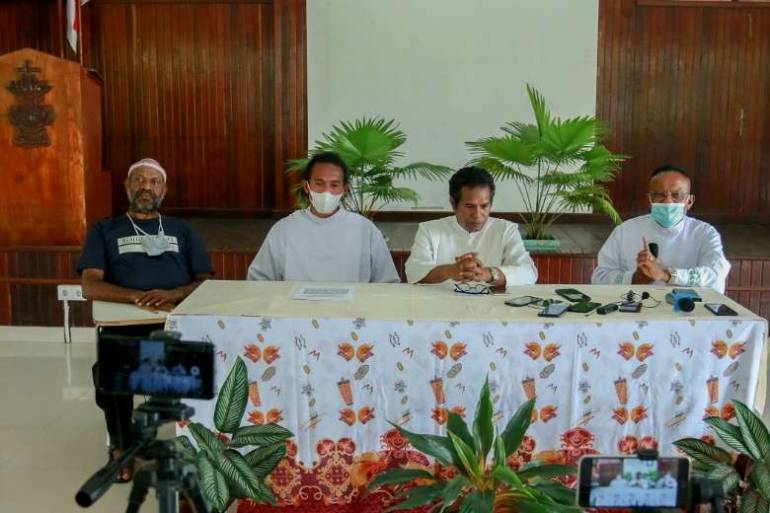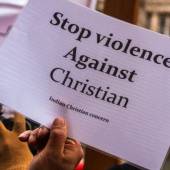30 Indonesian priests call for Papua ceasefire

More than 30 priests in Indonesia’s Papua province have called for a ceasefire between security forces and separatist rebels amid ongoing clashes that have forced thousands of people to flee their homes since Oct. 28.
Nearly 6,000 people have sought shelter at local church compounds in Intan Jaya district since last week when one child was killed and another wounded during an attack by rebels from the West Papua National Liberation Army and the Free Papua Movement on a military post in Sugapa.
It prompted 33 priests in Timika Diocese to issue a joint statement on Oct. 31 condemning the violence and to appeal for a ceasefire in Indonesia’s restive easternmost region that has seen a low-level insurgency against Indonesian rule for the past few decades.
“We are deeply concerned for the welfare of the refugees, so we call for both sides to declare a ceasefire,” they said.
They said the refugees were forced to flee to avoid being caught in the crossfire and because rebels had begun burning people’s homes.
Papua police spokesman Ahmad Musthofa Kamal said at least 5,850 people had sought refuge at several church compounds. About 2,400 were at St. Michael Church in Sugapa and 3,000 at a Catholic church in Agapa. Hundreds of others were scattered at other churches in the district.
The priests urged both sides to hold dialogue to end the violence so that people could return to their homes.
“Clashes are still being reported in Sugapa,” Father Dominikus Dulione Hodo told UCA News on Nov. 1.
Father Saul Wanimbo, chairman of Timika Diocese’s Justice and Peace Commission, said innocent people were being made to suffer as a result of the conflict, saying the military doesn’t help by stationing soldiers among civilians.
“Civilians are bound to get caught in the crossfire in the event of an attack,” Wanimbo said.
Radio Veritas Asia (RVA), a media platform of the Catholic Church, aims to share Christ. RVA started in 1969 as a continental Catholic radio station to serve Asian countries in their respective local language, thus earning the tag “the Voice of Asian Christianity.” Responding to the emerging context, RVA embraced media platforms to connect with the global Asian audience via its 21 language websites and various social media platforms.














